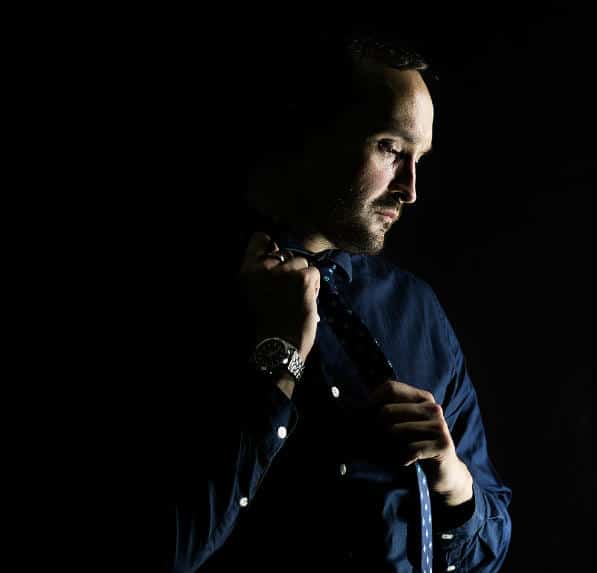The Facts Are Clear
Men are dying by suicide at an alarming rate.
They are more at risk for addiction than women, and they are the instigators of the majority of mass shootings and other forms of violence.
Does this make men “bad”? Absolutely not.
Men are crying out for help. Especially in a society that is largely asking them to “man up”, and “shut up”, maybe more so now than ever.
The statistics are sobering:
-Men make up over 75 percent of suicide victims in the United States, with one man killing himself every 20 minutes.
-Substance abuse occurs at a rate in men of 3 to 1 in comparison to females.
-Research suggests that men are very susceptible to turning to substance abuse in response to stressful life events and transition such as job loss and divorce.
-Research also suggests that men are much less likely than women to seek help when mental health conditions arise, and instead, suffer in silence.
Men are under fire.
They are being asked to answer for damages done by thousands of years of patriarchy.
Women are seeking more equality, and rightfully so. Women are either choosing to, or being forced to play, “traditionally” masculine roles.
This is in addition to roles as wife, mother, homemaker, and nurturer.
However, where does this leave men? In some cases, floundering for purpose and identity.
It is not wrong for the scales to shift, for the status quo to be examined. It is alarming that men are perpetuating so much violence, both toward others and toward themselves.
However, simply pointing a finger and saying “stop that”, has never really changed much.
Is it possible that the solution may be in compassion, rather than finger-pointing?
What is “Toxic Masculinity?”
The term “toxic masculinity” does not refer to masculinity inherently being toxic.
When a man is secure in true masculinity, there is nothing toxic about his behavior.
The term “toxic masculinity” refers to the way men behave when they are completely out of balance. When they are out of touch with their true feelings.
They are unable to process them in a healthy manner.
“Toxic masculinity” refers to behaviors created by generations of conditioning.
This includes the “boys will be boys” culture and the oppression of women in general. But also the oppression of men’s ability to be defined by anything besides violence, sex, status, and aggression.
There is a new reality taking hold in our society. And women are, for the most part, swiftly finding or making their own place in this new world.
Yes, women are often still struggling for fully equal rights and pay, but the women I know?
They are self-assured. Know they are strong. Know they are capable.
They know that they can do everything a woman can do, and probably everything a man can do just as well.
So what do men know right now?
So what do men know right now?
That suddenly, the skills and attributes that many of them were raised to believe were “manly” and necessary, a few decades ago, are now almost obsolete, and often unwanted.
They are being told that women want gentle, kind men who are in touch with their feelings. Who are totally chill with changing a diaper BUT … Who aren’t NEEDED.
Can you see how this might tie into some of the issues plaguing men’s mental health and wellbeing right now?
Most people on this planet need to feel worthwhile, useful, and as if they have a real purpose.
It is entirely possible that men’s purpose is shifting to some degree. However, the transition has not been easy on many of them. And it is clear when we observe the mental health crisis that men are experiencing.
So, what is actually causing this mental health crisis for men?
Let’s take it back to roots, here…
Ask 3-4 men in your life how many of them had ever been told to “man up”. Ask how young they were when they heard it the first time.
What do you think their answers would be?
If you were to ask the men in your life how they were taught, from childhood, to deal with emotions like sadness or fear?
What do you think the answer would be? Were they taught to deal with them at all?
Would they tell you that they were shamed for feeling sadness? For crying? For being afraid?
Was vulnerability encouraged, or was it shut down and shamed?
There are a few exceptions, but probably 90% of the men YOU know (and maybe even you, if you’re a man) can remember being told to “man up”, “stop crying, you’re acting like a girl”, or something similar, from a very early age.
Many would probably report feeling a lot of shame any time a less than “masculine” emotion surfaced. Any time they were vulnerable.
They can probably recall being urged to stifle any expression of emotion that was not happiness or aggression.
Many parents are not even fully aware that they are saying these things to their male children, because it is so ingrained in the culture.
Things are shifting now
Things are shifting now, but the damage has been done to so many men.
Surely, you can imagine how this would affect the mental health of the boys in our world, from very early on.
All humans are wired for all emotions, regardless of gender.
And to have balance and emotional health, we must learn to process those emotions appropriately.
Many boys have learned through television, video games, magazines, peers, and even, sadly, the adults in their life, that their status and worth – their “masculinity” – truly lie in their ability to make money, to look a certain way, and to win the physical affection of women.
Since looks and money are not easy for all men to obtain, much of the focus turns to affection from women.
When that affection is withheld or taken away, it can feel devastating, and to a man who has not learned to feel and process a feeling like sadness? He often then turns those feelings outward, to aggression.
Or, inward, to self-harm. Or, to substance abuse and addiction.
It would seem that this mental health crisis, the high suicide rates in men, and the high rates of mass violence committed by men, may be starting to make sense.
I would humbly hypothesize that the reason men are taking their lives at a higher rate than women, and the reason they are more susceptible to substance abuse and violence is because of this stifling, and yes, toxic standard of “masculinity” that they have been raised to live by.
But, what is the solution?
“As I look back on what I’ve learned about shame, gender, and worthiness, the greatest lesson is this: If we’re going to find our way out of shame and back to each other, vulnerability is the path and courage is the light.
To set down those lists of what we’re supposed to be is brave. To love ourselves and support each other in the process of becoming real is perhaps the greatest single act of daring greatly.”
― Brené Brown, Daring Greatly: How the Courage to Be Vulnerable Transforms the Way We Live, Love, Parent, and Lead
We cannot go back and repair the past, unfortunately. But we can begin now, and change our current reality.
As Brené Brown eloquently speaks about, the exact things that have been squashed in men from day one, are the things that likely will ultimately save them.
Without vulnerability, there is no connection, and without connection, any human will turn to addiction, self-harm, and/or violence.
It is time to make moves out of shame. To allow men to voice their fears, their sorrows, their needs. and to meet these feelings with compassion. To meet the men who are making these courageous steps with love and understanding.
Perhaps it’s time to teach our sons that true courage and masculinity comes from honoring, accepting, and feeling the feelings that we may be frightened of. To give our husbands, our boyfriends, our sons and fathers, a safe place to do this.
It is time to teach our sons that their worth lies not in what they can achieve in money, fame, looks, or sexuality, but their kindness, their gentleness, and their positive influence.
Connection & Belonging
“Connection: Connection is the energy that is created between people when they feel seen, heard, and valued; when they can give and receive without judgment. Belonging: Belonging is the innate human desire to be part of something larger than us.
Because this yearning is so primal, we often try to acquire it by fitting in and by seeking approval, which are not only hollow substitutes for belonging, but often barriers to it.
Because true belonging only happens when we present our authentic, imperfect selves to the world, our sense of belonging can never be greater than our level of self-acceptance.”
― Brené Brown, Daring Greatly: How the Courage to Be Vulnerable Transforms the Way We Live, Love, Parent, and Lead
In short, the answer is connection. If we – all of us, male and female, and everything in between – can stand in front of each other in vulnerability. In fear. In love. And in absolute authenticity- then we can truly begin to heal.
What is we throw away the picture of how masculinity or femininity is “supposed to look”, what roles we should play, and instead, just be who we are? How much easier it will be to love and accept ourselves, and the vulnerable human who stands in front of us.
Vulnerability creates connection. Connection can heal the world, and bring our “lost boys” back home to themselves.


